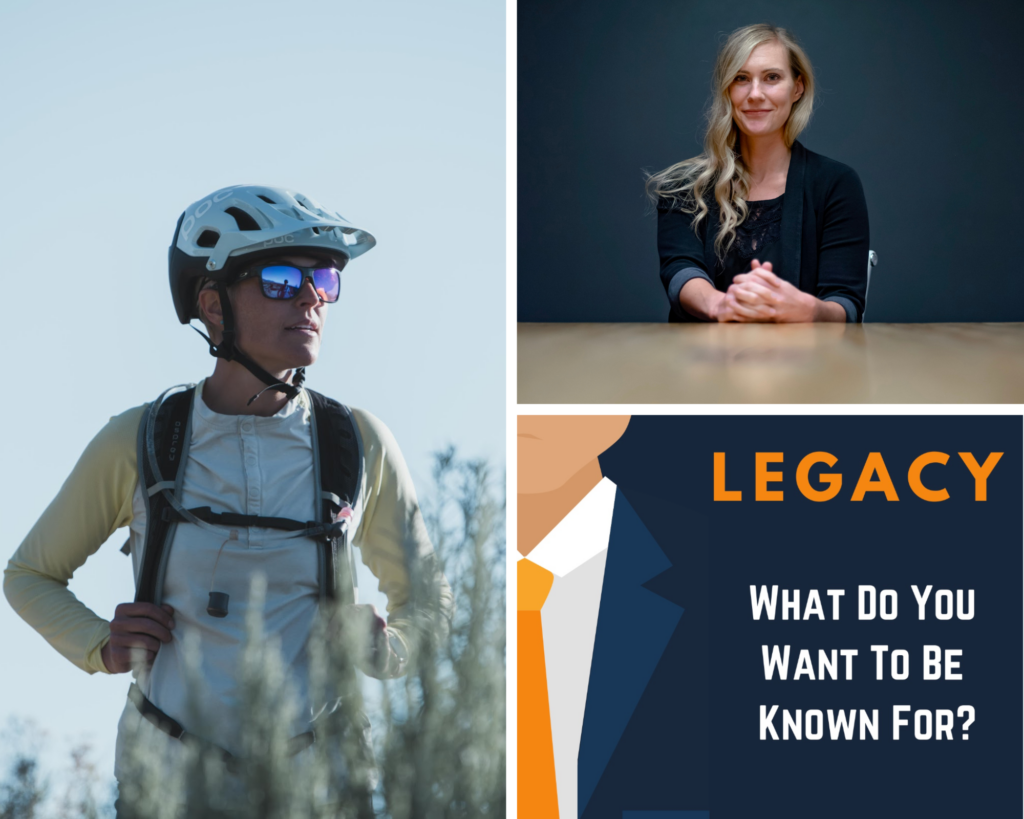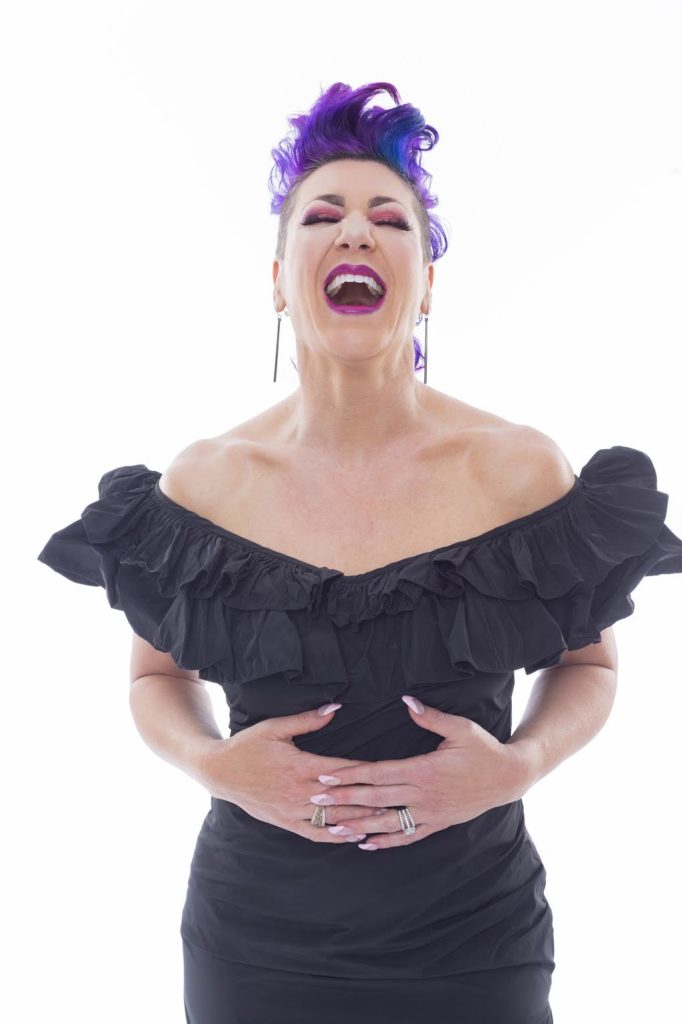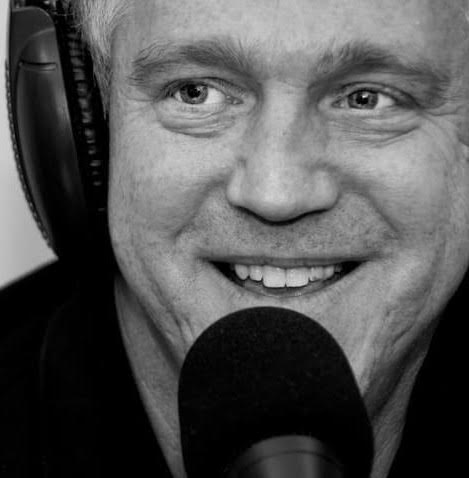In this episode Paul had the pleasure of speaking with Jamie Bangerter and Danielle LeCourt cohosts of The Are of Mountain biking. They dove into the philosophical aspects of the Mountain biking sport and how it presents an opportunity to learn valuable life lessons. Danielle shared how the idea for the podcast came about during a conversation with Jamie and emphasized the importance of having a structured platform to discuss the sport and deepen their understanding of its teachings.
One of the standout concepts that we explored is the idea of “one extra thought.” It involves intentionally adding a positive thought to counteract negative thinking patterns, particularly useful in split- second decisions during mountain biking. This technique helps regain control during moments of fear or anxiety.
Topics covered in this Episode:
- The concept of the “one extra thought” positive thought to counteract negative thinking patterns
- Journey of self-actualization, personal growth and self-improvement throughout the mountain biking experience. The focus is on the process and the lessons learned along the way, rather than solely on achieving specific goals.
- The fulfillment found in coaching others and helping them improve themselves. Giving back to society and leaving a positive impact.
Jamie Bangerter is the founder and head coach of SimplyMTB. With over 1500 students taught, Jamie brings awareness to life experience parallels and allows students to apply skills they already have to the trail. She focuses on teaching her students what she calls “mindful mountain biking,” which allows them to feel a difference and pay attention to when something changes in their own riding.
Danielle LeCourt is a former collegiate/professional volleyball player, former researcher and journalist, and current flourishing coach. As an athlete, she played for a top-25 Division 1 collegiate program, then professionally in Finland. As a journalist, she worked alongside researchers and scientists from Harvard University, Genentech, and other top institutions to tell stories about what it means to be well and live a fulfilling, productive life. These professional experiences now converge in her project-based personal development program called You Need a Thing.
Together the purpose of their podcast is to discuss what challenges and experiences on the bike say about themselves —and how to address them to not only ride well, but to live a full, meaningful life.
Connect with Jamie Bangerter here:
Website: https://simplymtb.com/
Instagram: https://www.instagram.com/Simply_MTB/
Connect with Danielle LeCourt here:
Website: https://www.youneedathing.com/
Instagram: https://www.instagram.com/youneedathing/
Connect with Paul here:
Website: https://innovativewealth.com/
Instagram: https://businesslegacypodcast.com/
Enjoyed this episode? Leave us a review and rating here: https://podcasts.apple.com/us/podcast/legacy/id1575634019
Thank you for listening, and hope you enjoyed this episode.
Please take the time to rate and review our show. Great reviews help us to reach a wider audience and inspire us here at Innovative Financial media to keep it up.
Other episodes you’ll enjoy:
What does Youtube have to do with Legacy?
Secrets to Balancing Business & Creative Passions with Augie Johnston’s
11 Reasons successful business owners need financial guidance
Timestamped summary of this episode:
Introduction of Jamie Bangerter and Danielle LeCourte
[0:01] Welcome to the Business Legacy podcast. And today, I have a pleasure of interviewing the host of one of my favorite podcasts, The Art of Mountain Biking.
Learning Lessons through Mountain Biking
[1:42] I think the coolest thing for me, at least Jamie, and you can chime in and tell me if it’s different for you, but I think it’s interesting to have these thoughts in your head all day, every day, and be walking kind of these lessons, but having the support of a structured, we know at least once a week, we’re gonna be talking about something.
And for me, it’s always come up, and this happens as a journalist as well, but whenever I have a question about something, sort of like the question starts working me, right?
[3:11] As far as what we’re talking about and how I can decipher what something means.
On the couch, you know, in my therapist’s office versus on the bike.
And oftentimes the lessons of the bike come way sooner than what I actually am able to understand with myself.
[3:34] Talk about that. Why did they come way sooner as opposed to everywhere else?
I think it’s more accessible to me to understand these lessons on the bike.
And those lessons, I want to say, were very hard to get when I was on the bike, when I was first starting.
Endurance Lessons Learned from Mountain Biking
[4:09] And as I went on, I was just like, oh, other people need to know how to do this too.
And then it was like when I was, we would get into therapy or even like my yoga teacher training, it was like, oh, what does endurance mean? I’m like, I’ve got all of the, I understand endurance.
I was an endurance athlete.
[5:01] So it’s funny, cause this actually came up on a ride with Jamie and I, this was before we had even started the podcast.
I think we had, we had decided that we were doing a podcast, but we hadn’t recorded anything yet, or maybe we had recorded the first one.
[5:12] But there’s she, one of our first rides that we went on together, she, she’s a much better writer.
She’s way more experienced than I am, but she noticed at a certain point, she’s like, you’ll follow me anywhere. It was really technical terrain.
And, you know, she said, like, you always just, you take that extra pedal stroke when a lot of people don’t.
[6:11] But I found that this tool of one extra thought of having that negative thought, right? Having that, Oh my God, I’m going to fall. And then just tacking one on at the end of that, that’s basically an answer to that thought of like, I’m going to fall. So just go, you know, or just one extra strike. And for me, that has been, especially on mountain biking. And I think, you know, when Jamie was talking about these, these lessons show up first on the bike, it’s because it’s really acute. You have to figure it out right now.
Overcoming Fear through “One Extra Thought”
[7:46] You can’t stop here. Hesitation is devastation. You have to keep going.
Jamie, as you’re watching students ride, what are you looking at and how can you recognize what’s going on in their head?
I feel so much of the fear that they have going into mountain biking because I felt it myself and I distinctly remember how that felt.
And I can see the stiffness in their body and it is almost like a flash go over them when they freeze up around a corner or they freeze up going down a rock or up a curb or something like that.
[8:55] And if their feet are not planted, then they’re not going to be secure.
When they’re not secure, they lose their ability to feel safe.
And that’s when they freeze.
[9:29] How does it feel when your students conquer either a technical trail or an obstacle that they haven’t done before?
Um, that’s why I started teaching because I was getting those wins less and less as I got better.
Coaching and Small Wins in Mountain Biking
[9:59] I mean, coaching is very hard. It takes a lot of energy physically and mentally to be there, show up, hold space for these people.
And it’s something that I wouldn’t keep doing if I didn’t love that part, those small wins, those small victories, it’s changing people’s lives, understanding how to mountain bike.
[10:41] That’s the million dollar question. It’s funny, cause Jamie and I talk about this all the time, and I talk about it on the podcast all the time. You know, I, I had the privilege of, uh, making it to the professional level in volleyball.
Um, you have to go overseas. There’s, there’s not a whole lot of that in the, in the States, but, you know, getting to that level at something and then having it end.
[11:43] Coming at it from a lot, and I see this a lot with really driven, really successful people, really ambitious people, a lot of times what is driving that is pain, is deficiency is this idea of I have to do this, or I’m not enough, or I have to do this, and or no one will love me, or I have nothing to offer the world, right, this kind of lack of inherent self worth. And so the, you know, 10 years after that were was was really a process of building that part, because I knew I had an edge.
[12:52] And so being able to see it now with my 30 something year old brain and, and go, Oh, how interesting.
And be able to apply those lessons now to excelling in a sport again.
That has been the most transformative process to do that consciously and knowing that it’ll end someday, you know, hopefully not for many years, but this will end someday.
Personal Development through Project-Based Coaching
[14:11] Now talk to us a little bit about some of the projects you’re working on.
I think it’s exciting. I actually have some experience with coaching, but just share with us a little bit about what you’re working on.
Is that to me? Oh yeah. Danielle, and well, we’ll go one-on-one.
[14:29] Yeah, go ahead. Okay. Yeah, so it’s interesting because I have, I have kind of one of those careers that only makes sense in retrospect, like it was winding. I don’t know how I ended up doing it.
One of the things that I always did alongside being an athlete growing up was writing.
[15:52] Know, and mine is basically taking anything. The program is called you need a thing. And the idea is it’s this like project based personal development is what I call it. So having a project, having a thing, you’re mountain biking, you know, it’s mountain biking for me, it’s mountain biking for Jamie. But you know, I have clients who are trail runners are musicians or artists, you know, that thing that just lights them up that they can’t, they can’t imagine not doing.
[17:21] Exactly, I love that you brought that up too because it is so interesting how that’s not the only place that it’s showing up in your life.
And one of the things that I forgot to mention is, You know, the program is open to everyone, but it’s really focused on men.
[17:47] And I find that men tend to tip towards that being less accessible to where the idea of breaking down your behavior in a particular situation through a particular thing is a lot more accessible.
[18:13] So Jamie, what’s the overall vision for Simply MTB? Where do you see it?
Where would you like it to go? And what’s the future?
[18:21] There’s been so much work in discovery. Mountain biking for me has been such a hyper focus for so many years. And then after I started coaching, the coaching aspect has become the hyper focus.
Like I go to sleep at night thinking of my students and how to like something will unlock with like, oh, that’s how I get to explain how to do this thing for this individual.
Importance of Coaching and Impact on Society
[19:55] Then it’s going to die with me. I don’t want it to be that way.
I want to have more people understanding. The more coaches we can coach, the more kids will be on bikes.
I think it really does lead into improvements on a societal level.
[20:11] What’s funny is when you first started answering the question.
[20:16] You said, I go to sleep at night, and then you said, I get to, not I have to, which is a really great thing to think about, right?
Is when you go to sleep at night and you wake up in the morning, you say, I get to do this.



